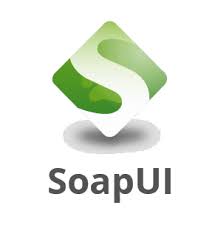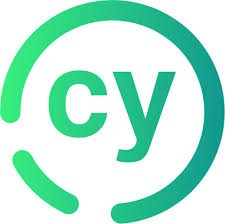Automation is the process of evaluating a software application
or system to ensure that it meets specified requirements, functions
correctly, and is reliable and efficient. The testing process involves
identifying defects or bugs in the software, and providing feedback to
developers to help them improve the software. The goal of software
testing is to ensure that the software meets the needs of its users,
and to prevent issues or errors that could cause problems for users.
It's a critical step in the software development process, and helps to
ensure that software is high quality and reliable.
Software testers play a crucial role in the software development
process. Here's what they do:
What is a Automation course and why should you take one?
The advanced Automation course in Laxmi Nagar, is a program
that teaches the skills and knowledge needed to become a skilled
software tester. Here are some reasons why you might want to take
one:
-
Develop valuable technical skills: Automation requires
technical skills such as understanding programming languages,
debugging, and using testing tools.
-
Stay current with industry trends: Automation is constantly
evolving, and a course can help you stay up-to-date with the
latest techniques and technologies.
-
Increase career opportunities: A Automation certification
can make you a more competitive candidate for Automation
jobs and can lead to higher salaries and better career prospects.
-
Become a problem-solver: Software testers play a critical role in
identifying and resolving software defects. A course can help you
develop problem-solving skills that can be applied to a variety of
situations.
Why should you choose simplilearnbay Automation course?
-
simplilearnbay instructors are experienced Automation
professionals who can provide real-world insights and examples.
-
The course is designed to be hands-on and practical, with
opportunities to apply what you learn through exercises and
projects.
-
The curriculum is regularly updated to reflect the latest industry
trends and best practices.
-
The course is affordable and flexible, with options for both
self-paced and instructor-led learning.
-
simplilearnbay provides career support, including resume and interview
preparation, networking opportunities, and job search assistance.
-
You'll learn about a variety of testing methodologies, including
manual and automated testing, and how to choose the right approach
for different projects.
-
You'll get exposure to different testing tools and technologies,
such as test management tools, automated testing tools, and defect
tracking tools.
-
The course covers important topics like test planning, test case
design, test execution, defect tracking, and test reporting.
-
You'll learn about testing for different types of software,
including web applications, mobile apps, and desktop applications.
-
And the cherry on top, simplilearnbay course is certified by a
reputable industry organization, adding even more credibility to
your resume!
Assured advantages of our out-standing Automation course
Here are the "out-standing" advantages of our Automation
course with job placement in Laxmi Nagar:
-
Job placement support to help you land a gig in the industry
-
Access to a community of like-minded learners and experienced
professionals for networking and support
- Regular feedback and mentorship from industry experts
-
A balance of theory and practical, hands-on learning to ensure you
develop the skills you need to succeed in the field.
-
A focus on soft skills like communication, teamwork, and critical
thinking to help you succeed in the industry.
-
Real-world case studies and simulations to give you a taste of
what it's like to work in the field.
-
Project-based learning opportunities to apply your knowledge to
real-world scenarios.
-
Flexible learning options, including online and in-person classes,
to accommodate different learning styles and schedules.
-
- Industry-recognized certification upon successful completion of
the course, which can open up even more opportunities for career
advancement.
In short, our Automation course for beginners in Laxmi Nagar
is a "test-worthy" investment for anyone looking to build a
successful career in the industry!
What is the ideal course curriculum for Automation
course?
A typical Automation course curriculum in Laxmi Nagar, might
look something like this:
- Introduction to Automation concepts and methodologies
-
Overview of different testing approaches (e.g., black-box,
white-box, and grey-box testing)
-
Practical experience with testing tools (e.g., Jira, Selenium, and
TestComplete)
-
Hands-on experience with manual and automated testing techniques
-
Understanding of different types of testing (e.g., functional,
regression, and non-functional testing)
- Knowledge of defect tracking and reporting
- Exposure to Agile and DevOps methodologies
-
Communication and collaboration skills for effective teamwork.
This Automation course syllabus in Laxmi Nagar will give you
the knowledge and skills you need to become a proficient software
tester.
Who is eligible for this Automation course?
The great thing about Automation is that it's accessible to
people with a wide range of backgrounds and skill levels. Here are
some general eligibility criteria for simplilearnbay’s advanced software
testing training in Laxmi Nagar:
- At least a high school diploma or equivalent
-
Basic computer literacy (knowing your way around a computer and
using software applications)
-
- Interest in and aptitude for problem-solving and critical
thinking
- Strong attention to detail and analytical skills
- Ability to work independently and as part of a team
- A passion for technology and a desire to learn new things
It's worth noting that many Automation courses do not require
previous experience in software development or coding. So, even if
you're a novice wanting to get in Automation course for
beginners in Laxmi Nagar, don't be intimidated!
Why is it beneficial to take a Automation course?
Here are just a few reasons why a Automation training in Laxmi
Nagar, is a great investment:
-
Increased job opportunities: Automation is a growing field,
and having the skills and knowledge to excel in this field can
open up a lot of doors.
-
Higher salaries: Software testers are in high demand and can
command higher salaries compared to other entry-level IT
positions.
-
Transferable skills: Automation requires a wide range of
skills that can be applied to many different industries and roles.
-
Improved quality of software: By learning how to identify and
address bugs and other issues, you can help create better, more
reliable software.
-
Personal growth: Automation can be a rewarding and
challenging career path that can help you develop new skills and
grow professionally.
-
Flexibility: Automation can be done remotely, so you can
work from anywhere.
-
Variety: Software testers can work on a wide range of projects,
from small apps to large enterprise systems, which can keep things
interesting.
-
Opportunity for specialization: As you gain experience, you can
choose to specialize in certain types of testing (e.g.,
performance, security, or accessibility testing).
-
Learning about new technologies: Automation requires you to
stay up-to-date on the latest technologies and trends, which can
keep things exciting and challenging.
-
Enhancing your resume: Having Automation skills on your
resume can make you a more attractive candidate for many different
roles in the IT field.
What incentives one can relish after finishing the course?
Let's talk about the sweet perks you can enjoy after completing a
Automation course in Laxmi Nagar:
-
Industry-recognized certification: Many courses offer
certifications that are highly respected by employers and can help
you stand out in the job market.
-
Improved job prospects: With a completed Automation course
on your resume, you'll be a more attractive candidate to
employers.
-
Increased earning potential: With the skills you'll gain from a
Automation course, you can command higher salaries in the
job market.
-
Improved job satisfaction: With the knowledge and skills you'll
gain, you'll be more competent and confident in your work, which
can lead to greater job satisfaction.
-
Networking opportunities: You'll have the opportunity to connect
with industry professionals and build your network, which can lead
to more opportunities down the road.
Here are a few popular job profiles you can pursue after completing
a Automation training in Laxmi Nagar:
-
Software Tester: Duh! You'll be the go-to person for ensuring that
the software being developed is working as expected.
-
Quality Assurance (QA) Engineer: You'll be responsible for
developing and executing testing plans to ensure that the software
meets quality standards.
-
Automation Tester: You'll use automation tools to run tests faster
and more efficiently, reducing the time and effort required to
manually test software.
-
Test Analyst: You'll be responsible for analyzing test results and
providing feedback to developers to improve the software.
-
Performance Tester: You'll focus on testing the software's
performance and identifying potential bottlenecks or performance
issues.
-
Basically, with a Automation course in Laxmi Nagar, under
your belt, you'll be a total hot commodity in the tech world!
Perks of getting a Automation course
There are many benefits to our Automation certification course
in Laxmi Nagar, kindly go through the below mentioned bullets to get
the finest idea.
- A comprehensive and high-quality course curriculum.
-
You'll have the opportunity to communicate with industry experts
to create a personalized curriculum tailored to your needs and
interests.
-
Gain valuable real-world experience with 15+ industry projects
across 6+ different domains.
-
Our live interactive sessions and recorded videos give you the
flexibility to learn at your own pace.
-
This course is designed to be completed in just five months, but
you'll have lifetime access to the materials and resources.
-
Our simulated interview sessions help you prepare for the real
world and give you the confidence to succeed in a job interview.
-
You'll earn two certifications - one from Microsoft and one from a
leading company. These certifications will validate your skills
and give you a competitive edge in the job market.
-
You'll receive guaranteed job referrals to help you land your
dream job.
-
You can choose between an online or an offline course, depending
on your preferences and availability.
-
This course is designed to be completed in just five months, but
you'll have lifetime access to the materials and resources.
What core skills and projects will be focused upon in this
Automation course?
Here are some core skills and projects simplilearnbay’s Automation
course syllabus in Laxmi Nagar covers:
-
Test planning and design: Learning how to design and plan
effective tests that cover all areas of the software.
-
Test execution: Practicing how to execute tests manually or using
automation tools.
-
Defect tracking and reporting: Learning how to identify defects
and report them effectively to the development team.
-
Test case management: Understanding how to manage and prioritize
test cases.
-
Performance testing: Learning how to measure and analyze software
performance.
-
Usability testing: Understanding how to test the user experience
of the software.
And all these skills are super important to have in the software
testing field, so it's a win-win situation.
How long this Automation course will stretch?
The Automation course duration in Laxmi Nagar is 4.5 months
which also comes with a special provision of special batches for the
students who want to maintain work life balance and for some reason
cannot go for the standard schedule for Automation course in
Laxmi Nagar can easily go for this option.
Here's a rough
breakdown of what you can expect during that time:
-
First month: Introduction to Automation, types of testing,
and testing methodologies.
-
Second month: Test planning, design, and execution, including
hands-on practice with test cases.
-
Third month: Test automation, performance testing, and security
testing.
-
Fourth month: Usability testing, testing in the cloud, and
continuous testing methodologies.
-
Final half-month: Final projects, review, and certification
preparation.
This timeline allows enough time to cover the key concepts of
Automation in depth, and provides ample opportunity for
hands-on experience and practice.
How much a Automation course cost?
The Automation course fees in Laxmi Nagar is 35K in which one
can expect to learn every bit of Automation world. This cost
typically covers the course materials, instruction, and potentially
certification exams or prep courses. So you are getting best of the
best by paying just a few bucks.
Prediction of the future of Automation industry
Here are some potential predictions for the Automation
industry:
-
Increased automation: Automated testing is likely to become more
prevalent as technology advances, which could mean that manual
testing roles become less common.
-
Greater focus on user experience: As the user experience becomes
increasingly important, Automation may shift to focus more
on UX testing.
-
Growing demand for testing expertise: As software becomes more
complex and interconnected, the demand for skilled software
testers may increase.
-
Emergence of new testing techniques: New testing techniques such
as AI-powered testing and behavior-driven development may emerge
to support the evolving landscape of software development.
-
Shift-left testing: This approach involves testing earlier in the
development process, which can help identify defects earlier and
reduce the cost of fixing them.
-
Continuous testing: With the rise of agile and DevOps
methodologies, continuous testing is becoming more common. This
approach involves testing throughout the software development
process to identify and fix defects quickly.
-
Increased emphasis on security testing: As cyber threats become
more sophisticated, Automation will play a critical role in
ensuring the security of software applications.
-
Rise of cloud-based testing: With the growth of cloud computing,
more testing will be done in the cloud, which can provide greater
scalability and flexibility.
f course, these are just predictions - the future is always
uncertain. But one thing's for sure: the Automation industry
will continue to play a critical role in ensuring the quality and
reliability of the software we rely on every day!
In summary,
the future of Automation is looking pretty bright (or at least
not too dark)!
How distinctive is to get the online Automation course than
an offline setting?
Here are some key differences between online Automation course
in Laxmi Nagar, and in-person Automation course classes in
Laxmi Nagar:
-
Online courses offer greater flexibility and convenience, as they
can be completed at your own pace and from anywhere with an
internet connection.
-
In-person classes provide a more structured learning environment
and allow for face-to-face interaction with instructors and
classmates.
-
Online courses may offer more affordable tuition compared to
in-person classes, as they have lower overhead costs.
-
In-person classes may provide hands-on experience with testing
tools and equipment that may not be available in an online
setting.
In the end, it's a matter of personal preference and what fits your
learning style best.
How huge the hunger is there in India for Automation
course?
The demand for Automation courses in India is definitely on
the rise! Here's why:
-
India is a hub for IT outsourcing, and Automation is a
critical component of any successful IT project.
-
The Indian government has been promoting the IT sector, and many
organizations are investing in Automation to stay
competitive.
-
The growth of the Indian startup ecosystem has also created a
demand for skilled software testers to ensure the quality of new
products and services.
-
More and more colleges and universities in India are offering
Automation courses, making it a more accessible career
option for young people.
-
The emergence of new technologies such as AI, IoT, and cloud
computing has increased the complexity of software systems, making
testing even more crucial.
-
The rapid growth of the e-commerce industry in India has also
driven the demand for Automation, as companies want to
ensure their websites and apps are user-friendly and secure.
-
Companies are becoming more aware of the importance of software
quality and are investing more in testing to avoid costly defects
and negative user experiences.
Overall, Automation is becoming an increasingly vital aspect
of the tech industry in India, and the demand for skilled testers is
only going to grow in the coming years.
How much a software tester can earn nationally and
internationally?
Software tester salaries vary depending on several factors,
including location, experience level, and the type of testing they
specialize in. On average, a software tester in India can expect to
earn anywhere between ₹1.3 lakhs to ₹7 lakhs per year (around
$17,000 to $95,000 USD). Freshers or entry-level software testers
may start at the lower end of the range, while experienced
professionals can earn towards the higher end. Automation testers,
who use specialized software to automate testing processes, tend to
earn more than manual testers. Additionally, software testers
working in major cities like Bangalore, Mumbai, and Delhi typically
earn more than those working in smaller cities or rural areas.
Overall, Automation can be a rewarding and well-paying career
path in India.
What Automation course is all about?
A Automation course curriculum in Laxmi Nagar, typically
covers a variety of topics, including:
-
Automation fundamentals, such as the different types of
testing (unit testing, integration testing, system testing, etc.),
test planning and design, and testing techniques (black box, white
box, etc.).
-
Tools and techniques used in Automation, such as automation
tools (e.g. Selenium, Appium), defect tracking tools (e.g. Jira),
and performance testing tools (e.g. JMeter, LoadRunner).
-
Automation processes and methodologies, such as Agile
testing, Waterfall testing, and DevOps.
-
Quality assurance concepts, such as software quality metrics, test
case development, and test execution.
-
Communication and documentation, such as reporting bugs and
issues, writing test reports, and creating test plans and
strategies.
Benefits of getting the Automation course
Here are some of the Automation course benefits in Laxmi
Nagar, one can relish:
-
Increased job opportunities: The demand for software testers is on
the rise, so having a certification or training in software
testing can make you a more attractive candidate for employers.
-
Better job performance: With a Automation course, you'll be
equipped with the knowledge and skills to perform your job more
effectively and efficiently, making you a valuable asset to any
organization.
-
Increased earning potential: Certified software testers typically
earn higher salaries than those without certification, so getting
a Automation course can boost your earning potential.
-
Greater job satisfaction: Understanding Automation
principles and techniques can help you take on more challenging
projects, improve your problem-solving abilities, and contribute
to higher quality products. All of which can lead to greater job
satisfaction and career advancement.
How huge is the scope for Automation course?
The scope of Automation is pretty darn huge! Here's why:
-
With the proliferation of technology and the increasing complexity
of software, there's always going to be a need for skilled testers
to ensure that products are working as expected.
-
The demand for Automation professionals is expected to grow
faster than the average for all occupations in the next decade.
-
With the growing trend of digitization, more and more
organizations are shifting towards cloud computing, IoT, and
AI-based products, which in turn is leading to the need for
advanced Automation skills.
-
Automation has become an essential part of the development
process, making it a crucial part of any company's success.
-
There are numerous career paths available in Automation,
such as test automation engineers, performance testers, security
testers, and accessibility testers.
-
Automation is not limited to the IT industry. Many other
industries like healthcare, finance, and e-commerce also rely
heavily on Automation.
-
Automation is not limited to the IT industry. Many other
industries like healthcare, finance, and e-commerce also rely
heavily on Automation.
-
Automation is no longer limited to functional testing, but
also involves non-functional testing like usability, performance,
security, and compatibility testing.
-
Automation is not just about finding bugs, but also about
improving the quality of the software. Testers play a crucial role
in identifying areas for improvement and helping to deliver a
better product.
-
With the rise of mobile devices, the demand for mobile app testing
has grown. This includes testing for different operating systems,
devices, and network conditions.
-
Many companies are now investing in continuous integration and
continuous delivery (CI/CD) pipelines, which require continuous
testing to ensure that changes don't introduce new bugs or
security vulnerabilities.
The bottom line is that Automation is a critical part of the
software development lifecycle, and its scope will only continue to
expand as technology evolves. The list goes on, but you get the
picture. Automation is a vast and ever-evolving field with
plenty of opportunities for those willing to dive in!
How to get admission in the Automation course?
simplilearnbay offers a comprehensive Automation course in Laxmi
Nagar, and the admission process is straightforward and streamlined:
-
Interested applicants can complete the online application form.
-
They will then be contacted by an admissions representative for a
screening call to assess their qualifications and fit for the
program.
-
Applicants must submit their transcripts, resume, and other
relevant materials for review.
-
The admissions committee will evaluate the materials and make a
final decision.
-
Successful applicants will be notified of their acceptance and can
begin the journey toward becoming a skilled software tester.
How to get admission in the AI and data science course?
If you're interested in enrolling in an AI and data science course,
you can typically do so by visiting the course provider's website,
browsing their catalog of courses, and selecting the one that best
matches your interests and skill level. Once you've selected a
course, you can typically follow the provider's enrollment process
and pay for the course to gain access to the materials and begin
your learning journey.



























.png)
.png)


.jpg)



